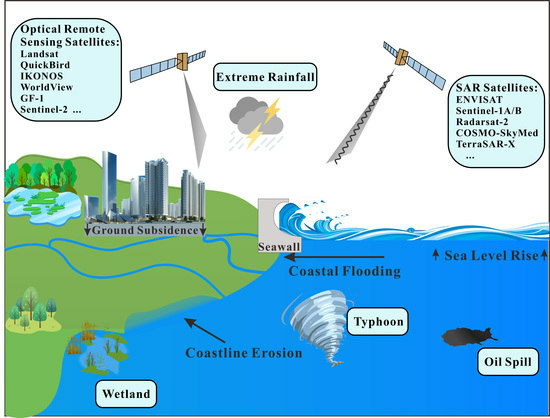About a month ago, the technology giant Apple made a shocking announcement: not only does it now employ 60 engineers in the Palestinian city of Rawabi in the West Bank, it also plans to expand its workforce there. Although these numbers pale in comparison to Israel, where the number of Apple employees is estimated at 2,000 people, this is still encouraging news for the Palestinians, with the potential to be a pillar of the Palestinian economy.
The Palestinian economy has been in decline for many years, and is far from realizing its potential. Agriculture is declining, and the economy is becoming more and more exploitative, without significant production. In addition, the coronavirus pandemic has increased the number of Palestinians living below the poverty line.
Does Palestinian hi-tech have a chance? Avner Halperin, an Israeli businessman, joined the American economists Ely Sandler and the Palestinian businessman Mahmoud Khweis to take a report analyzing the potential of the Palestinian hi-tech sector for the future, which was delivered to the U.S. Department of State. The recommendation was presented last week, and now the team hopes to turn the recommendation into a detailed action plan.
“We had detailed discussions with 70 entrepreneurs, traders, government officials, Palestinians, Israelis, Americans and Europeans working in the Middle East’s hi-tech,” said Halperin. “We organized the proposal that exists today, and we realized that there is a great opportunity for the success of Palestinian hi-tech, for several reasons.”
Palestinian hi-tech workers in Ramallah, in 2012. Credit: Ofer Vaknin
Although covered by Israel, the highest percentage of Palestinians who work as engineers stands in the middle of the Middle East, and is even three times higher than that of the US.
Another reason, which is also important: money. “There’s a lot of money, and a willingness to invest in the region,” says Halperin. “The [U.S.] administration has made many decisions, including the development of the Palestinian economy and regional unity. MEPPA (Middle East Partnership for Peace Act), which was passed during the time of President Donald Trump, provided 250 million dollars.”
One of the people who pushed the issue behind the scenes in Washington was the Israeli venture capitalist Yadin Kaufmann, who works to develop the Palestinian hi-tech sector, and who also started a venture capital fund more than ten years ago focused on Palestinian hi-tech. . According to Halperin, “there is a serious budget for the next five years.”
Even within Israel, there is interest in developing the Palestinian hi-tech sector, which is seen as a regional interest rather than a political question. “In one of his last speeches as prime minister, Naftali Bennett said he encouraged Palestinian involvement in Israeli hi-tech,” Halperin said. “And in November, the government allowed the entry of 500 Palestinian hi-tech workers into Israel.”
It is impossible to separate economics from politics, and this is doubly true in the Palestinian territories. Another major issue facing the Palestinian economy is Israeli control, which restricts the entry and exit of people and goods from the area, as well as internet communications.
“Entrepreneurs are people who overcome problems. But in our age you need to be able to communicate from anywhere,” explains Haslperin. “Cellular communication in Palestinian communities is limited, which has come up in many discussions with advertisers, businessmen, and international actors. Some areas are still using 2G which makes it difficult to communicate.”
Another challenge facing Palestinian hi-tech is the Palestinian Authorities’ management. It is clear that Halperin tries to be gentle when he says that “the PA does not pass as a body that works with control and transparency in the financial management.” But another problem is that although thousands of Palestinian engineers graduate every year, their training is not advanced enough to meet the professional expectations in the industry.
In the late 1970s, the Bird Foundation (BIRD) was established with the help of the American government and the Government of Israel, with the aim of promoting and supporting the collaboration between Israel and America in the field of research and development. “Researchers who have studied the development of Israeli hi-tech said that the Bird Foundation was one of the things that promoted the industry, and helped build the country first,” says Halperin.
The main recommendation in the report of Halperin and his colleagues is to open the Bird Foundation raised in the West Bank (Later, the recommendation will also deal with the Gaza Strip) – a court financed by the American government, the Gulf countries and possibly also. European bodies, and promote three main steps: first, international cooperation between American and Gulf companies and Palestinian companies.
Avner Halperin Credit: Yossi Zeliger
“Palestinian hi-tech is suitable to work with the Gulf countries, as it can be used with existing technology and adapt it to the Arab countries in terms of language, culture, etc.,” says Halperin.
The second step of the proposed fund will be to promote the provision of aid. “When you are creating and the innovation industry, we need a governing body that can turn to the problems that have arisen and that can provide economic stimulus. Like the Israel Innovation Authority,” says Halperin. “We want this committee, the Global Palestinian Innovation Foundation, to act as a public organization, not a government one. International support will help create relationships with companies around the world, and it needs a strong board of directors – including funding agencies, as well as successful Palestinian hi-tech people, some of whom live abroad.”
The third step will be the relationship between successful entrepreneurs from the Palestinian diaspora around the world and the local Palestinian industry. “If you look at what happened in Israeli hi-tech,” says Halperin, “many Israelis went abroad, became successful, then returned to Israel and grew the industry, or helped in helping Israeli companies from abroad. An Israeli businessman who wants to acquire Tot Cisco, for example, there will always be the head of Israel there, as well as Intel, Microsoft, and others. The Palestinians must also have this technology.
Indeed, cooperation with Israeli hi-tech is not included in the list of goals of the future body. “We discussed this. After all, such cooperation is important, but we decided that it should not be part of the court’s law. Such an action would cause controversy and become a political issue. We believe that such cooperation will take place in the long term,” says Halperin.
Apple is not the only major global company that employs Palestinian engineers. Also the Mellanox of Israel, which was sold to the chip giant Nvidia, started working in 2010 in the West Bank, using programs in Ramallah, and later in Rawabi and even in the Gaza Strip. Today, about 150 Palestinian engineers work for Nvidia. “There are thousands of Palestinian engineers working for foreign companies. Today there are 100 Palestinian startups in their early stages with early development. International technology companies play an important role in developing this industry. We hope that Apple employees will eventually settle down and create their own start-ups,” says Halperin.
“The goal is to create companies, but also to establish areas of development in the regions. International competition has made it difficult to find areas of development. Therefore, this organization must be attractive, and roll out the red carpet for companies to show that it has the support of the American government – and above all, that there is someone to talk to with him.”



